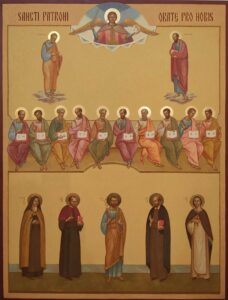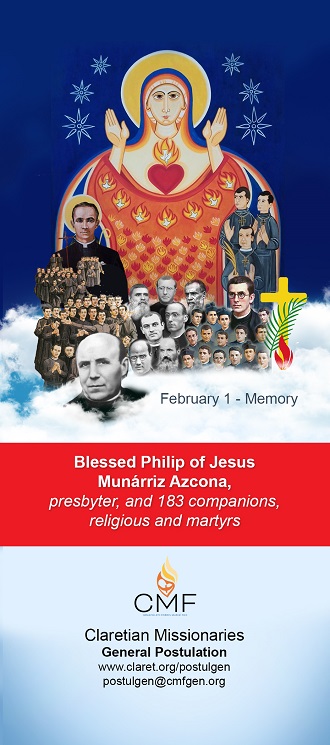“There can be any number of theories about what constitutes holiness, with various explanations and distinctions. Such reflection may be useful, but nothing is more enlightening than turning to Jesus’ words and seeing his way of teaching the truth. Jesus explained with great simplicity what it means to be holy when he gave us the Beatitudes (cf. Mt 5:3-12; Lk 6:20-23). The Beatitudes are like a Christian’s identity card. So if anyone asks: “What must one do to be a good Christian?”, the answer is clear. We have to do, each in our own way, what Jesus told us in the Sermon on the Mount”. (Gaudete et Exsultate, n.63)
1. “Blessed are the poor in spirit, for theirs is the kingdom of heaven”
The Gospel invites us to peer into the depths of our heart, to see where we find our security in life. Usually, the rich feel secure in their wealth, and think that, if that wealth is threatened, the whole meaning of their earthly life can collapse. Jesus himself tells us this in the parable of the rich fool: he speaks of a man who was sure of himself, yet foolish, for it did not dawn on him that he might die that very day (cf. Lk 12:16-21).
Wealth ensures nothing. Indeed, once we think we are rich, we can become so self-satisfied that we leave no room for God’s word, for the love of our brothers and sisters, or for the enjoyment of the most important things in life. In this way, we miss out on the greatest treasure of all. That is why Jesus calls blessed those who are poor in spirit, those who have a poor heart, for there the Lord can enter with his perennial newness.
This spiritual poverty is closely linked to what Saint Ignatius of Loyola calls “holy indifference”, which brings us to a radiant interior freedom: “We need to train ourselves to be indifferent in our attitude to all created things, in all that is permitted to our free will and not forbidden; so that on our part, we do not set our hearts on good health rather than bad, riches rather than poverty, honour rather than dishonour, a long life rather than a short one, and so in all the rest”.
Luke does not speak of poverty “of spirit” but simply of those who are “poor” (cf. Lk 6:20). In this way, he too invites us to live a plain and austere life. He calls us to share in the life of those most in need, the life lived by the Apostles, and ultimately to configure ourselves to Jesus who, though rich, “made himself poor” (2 Cor 8:9).
Being poor of heart: that is holiness.
Cf. EG, 67-70



